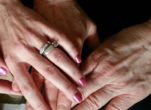
What Does It Mean To Be A Woman?
“Where are your women?”
This is what a shaman from Brazil asked when he arrived in the U.S. in the 1980s. He saw that many women were acting more like men than women, causing a systemic and cultural imbalance. Because our systems (financial, educational, political, medical, etc) were designed by and for men, I believe that women have by and large abdicated our unique feminine needs in an effort to conform and fit into the existing structures of power and success. This has created not only an outer imbalance, but also an inner imbalance within the hearts of many woman.
I experienced this imbalance throughout much of my own life. I was what Maureen Murdock calls a father’s daughter in her book The Heroine’s Journey: “… a woman who has identified primarily with the father, often rejecting the mother, and who has sought attention and approval from the father and masculine values.”
Although my mother was very accomplished for her time, born in 1925, with a master’s degree, like many women in her generation she was largely disempowered. She was raised in the South, in a patriarchal structure where the men owned the land, the women, and the slaves. My feminine lineage carried a well-entrenched sense of shame. Once married, my mother became the woman behind the man and the mother of five girls, giving away her time and energy, which often left her depleted and depressed. My father, on the other hand, was an accomplished World War II hero and president of a university. He was grounded, successful and strong and represented everything that I aspired to be.
It didn’t take me long to realize that the safest path with the greatest chance for success and independence was a masculine one. I focused my efforts on creating a successful business career at Bain and Company, Apple Computer Europe, and finally as a partner at Russell Reynolds Associates in London. I prided myself on the fact that I was often the only woman in the room, working late nights and weekends to ensure my success. I often felt like an imposter though, and never felt truly aligned with my purpose. I didn’t realize just how much I had abandoned myself as a woman until I had children.
Becoming a mother brought up all the trauma and beliefs I’d inherited from my mother that I’d desperately tried to ignore. I avoided the pain until my son was diagnosed with obsessive compulsive disorder (OCD) and I realized that I had to face myself. What my son needed more than anything was to feel safe, supported, and loved unconditionally. He needed a nurturing, loving presence from a mother, not the masculine, fixing, controlling energy I carried. In the same way that I never felt safe as a child, because my mother was rarely truly present, I was creating the same dynamic for my children. I knew that if I wanted to break my family pattern I would have to start with healing my wounded feminine.
As my healing journey unfolded, I started asking every women I spoke with, “What does it mean to be a woman in the 21st century?” To my surprise almost every women I asked responded with something like, “I don’t know. I have never really thought about that.” This led me to question if we were consciously writing our own story as women. Perhaps we’ve been living out the unconscious expectations and desires that have been placed on us, keeping us stuck in a feeling that we are somehow not enough. This was definitely true for me and it felt like I wasn’t alone. What would the world look like if women began to write their own story based on their own needs? What if we stood together and said, “We are worthy, a woman’s needs matter, and we are enough!”
The Woman’s Network was born from this idea; that women need a safe place to come together and recover what it truly means to be a woman. For so long, I had been overriding my feminine needs and neglecting my unique gifts as a women. I wanted to come together with other women to reclaim this. I believe that we’re in a recovery process, healing our relationship to ourselves and our bodies. For me, remembering who I am as a woman meant forgiving myself in order to reconcile all of the parts of me that I had abandoned and given away in an effort to prove my worth.
My healing journey is by no means over, and it’s my desire to bring other women along for the ride. We will learn from each other and remember who we truly are. There is a collective wound for us to heal together, and together we can support each other in ways that were never available to my mother, and certainly none of the women who came before her.
We are at a unique time in history where we understand how trauma gets transferred from one generation to the next, from mother to daughter and we have many methods to address this. As a united sisterhood, we can become the happy, healthy, holy women we were always meant to be and create a more balanced society for all.
If my story resonates with you and you would like to be part of making history, I invite you share your voice in our survey
Our goal at TWN is to be a resource, identifying some of the core struggles and needs we have as women. We aim to offer tools and techniques to support women in healing and integrating, feeling more empowered, finding their voice and sharing their gifts. You can also join one of our focus groups and/or share your story on our website. Your voice is important! Together we can write the story of what it means to be a woman in the 21st century.
Love and hugs,
Lois
Founder of The Woman’s Network











1 comment to "What Does It Mean To Be A Woman?"